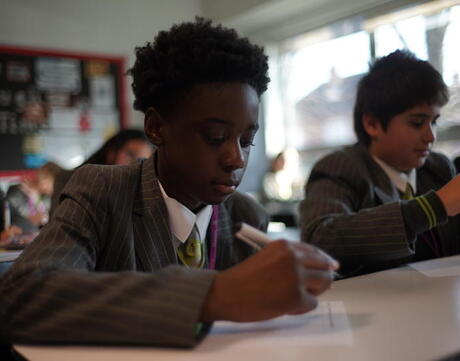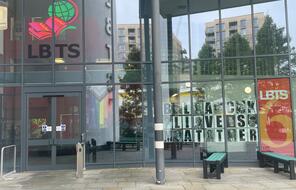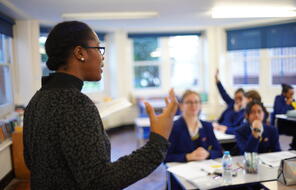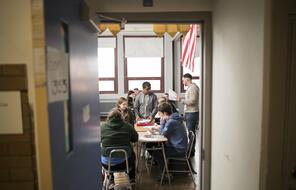
March Assemblies
Facing History Approach to Assemblies
Assemblies are a critical part of the school day. Regular assemblies provide an opportunity to bring your students together in order to introduce important issues and share your school’s values and priorities. Utilised correctly, assemblies have the potential to build an inclusive and supportive school community.
At Facing History, our assemblies have been designed to introduce students to significant annual and/or historical events, whilst supporting them to become empathetic and critical thinkers. Each assembly also provides students with opportunities to share their thoughts with each other, helping them to develop oracy and listening skills. The assemblies last for approximately 20 minutes, but can be adapted to suit your specific timing requirements.
Facing History assemblies do not require specialist knowledge and are suitable for use in a KS3 or KS4 assembly or in tutor time/PSHE. Some assemblies have been adapted from existing Facing History lessons and resources available on our website, while others have been newly created.
Assemblies in March
There are three assemblies available for use in March.
Assembly PowerPoints
World Book Day
What is World Book Day and why does it matter? World Book Day is an opportunity to promote reading for pleasure and to encourage young people to discover or rediscover the joy of reading. Whilst most young people and teachers accept that reading skills are vital as they allow young people to access education and the curriculum, the power of reading goes beyond the curriculum. Studies have found that reading not only has a positive impact on a person’s mental wellbeing, but that reading for pleasure is the single biggest indicator of a child’s future success. This assembly guides young people to consider the benefits of reading and also provides an opportunity for shared reading of excerpts from both an article and a contemporary YA novel.
International Women’s Day
What is International Women’s Day and why does it matter? International Women’s Day is an opportunity for your students to celebrate the achievement of women and to consider how gender inequality plays out in society. This assembly asks young people to consider why women may be underrepresented in key industries and positions of power and what could be done to address this. They also have the opportunity to read about Diane Abbott, the first black woman MP in the UK and to consider how her experiences of being an MP have been shaped by her gender and her race.
International Day for the Elimination of Racial Discrimination
What is International Day for the Elimination of Racial Discrimination and why does it matter? This assembly provides schools with an opportunity to revisit the anti-racism work that they do and to reiterate that racism is unacceptable within their school and within society. This assembly provides information about the purpose of International Day for the Elimination of Racial Discrimination, and draws on research conducted by Facing History UK which asked young people about their experiences of racism and discrimination. The statistics shared as part of this assembly help shape opportunities for discussion.
Notes for Use
Download the student-facing slides here. While you may need to modify these to meet the needs of your students, please note that Facing History and Ourselves does not endorse any changes that alter the presentation's content or original layout.















